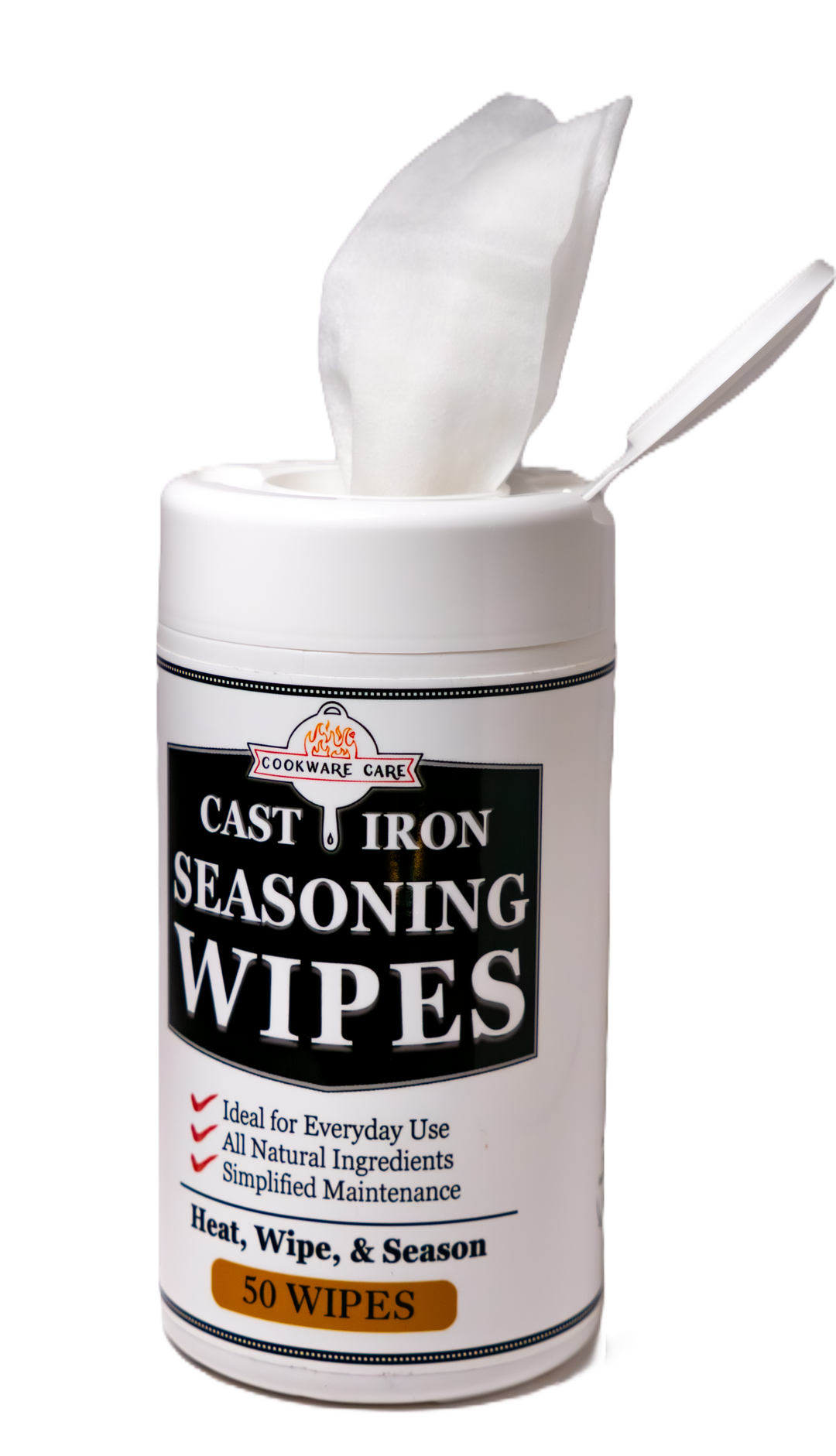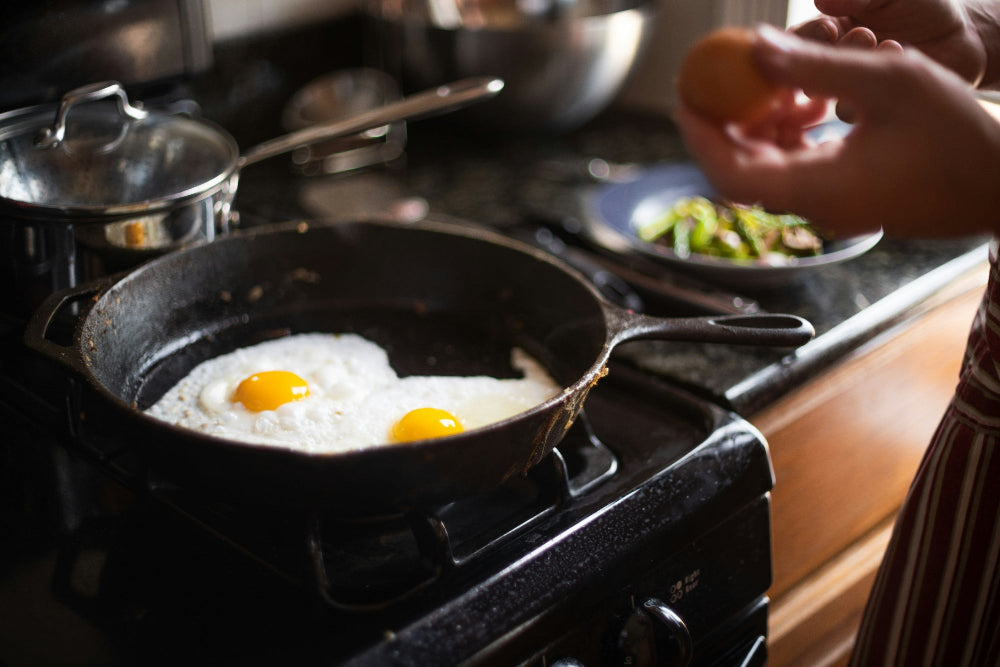Cast iron cookware has earned its place in kitchens worldwide for its durability, versatility, and ability to enhance the flavors of your favorite dishes. To ensure your cast iron cookware continue to serve you well for generations to come, proper maintenance is key. We will explore essential tips and techniques to help you maintain the longevity of your cast iron cookware surface.
Seasoning: The Foundation of Protection
Seasoning is the process of polymerizing oil which creates a natural nonstick surface on your cast iron cookware. This protective layer not only prevents rust but also enhances the flavor of your food.
Here's how to season your cast iron:
|
 |
Cleaning: Gentle Care for Longevity
- Avoid Harsh Detergents: After each use, avoid using harsh detergents such as dishwasher detergents, as they can strip away the seasoning. Warm water, a sponge, scrub brush or a chainmail to scrub your cast iron. If need be you can use dish soap such as Dawn.
- No Soaking: Never soak your cast iron cookware or leave it submerged in water for extended periods. This type of exposure can lead to rusting.
- Stubborn Food Residue: If you encounter stubborn food residue,
boil water in the cookware to loosen stuck-on food, and then scrub it away. Alternatively, sprinkle coarse salt on the surface and scrub gently with a damp cloth, brush, or chainmail.
-
Dry Thoroughly: After cleaning, thoroughly dry your cast iron with a towel or by placing it on low heat on the stovetop. Moisture is the enemy of cast iron, and proper drying prevents rust formation.
Storage: Shielding Your Cast Iron
Proper storage plays a crucial role in maintaining the longevity of your cast iron cookware.
- Cool Completely: Ensure your cast iron has completely cooled down before storing it. Placing hot cookware in a cool, damp environment can cause moisture to accumulate, leading to rust.
- Seasoning Between Uses: To prevent rust and maintain the seasoning layer, lightly coat the interior surface of your cast iron with a thin layer of oil after each use. Feel free to checkout our range of seasoning products
- Stack with Care: Your seasoning is quite durable but its always best to protect it as best as possible if stacking multiple cast iron pieces. Place a paper towel or cloth between them to prevent scratching or chipping.
- Air Circulation: If possible, store your cast iron in a well-ventilated area to promote air circulation and prevent any potential moisture buildup.
By following these essential maintenance tips, you can ensure the longevity of your beloved cast iron cookware. Regular seasoning, cleaning, and proper storage practices will protect your cookware from rust, maintain its natural nonstick surface, and allow it to be past down for generations







